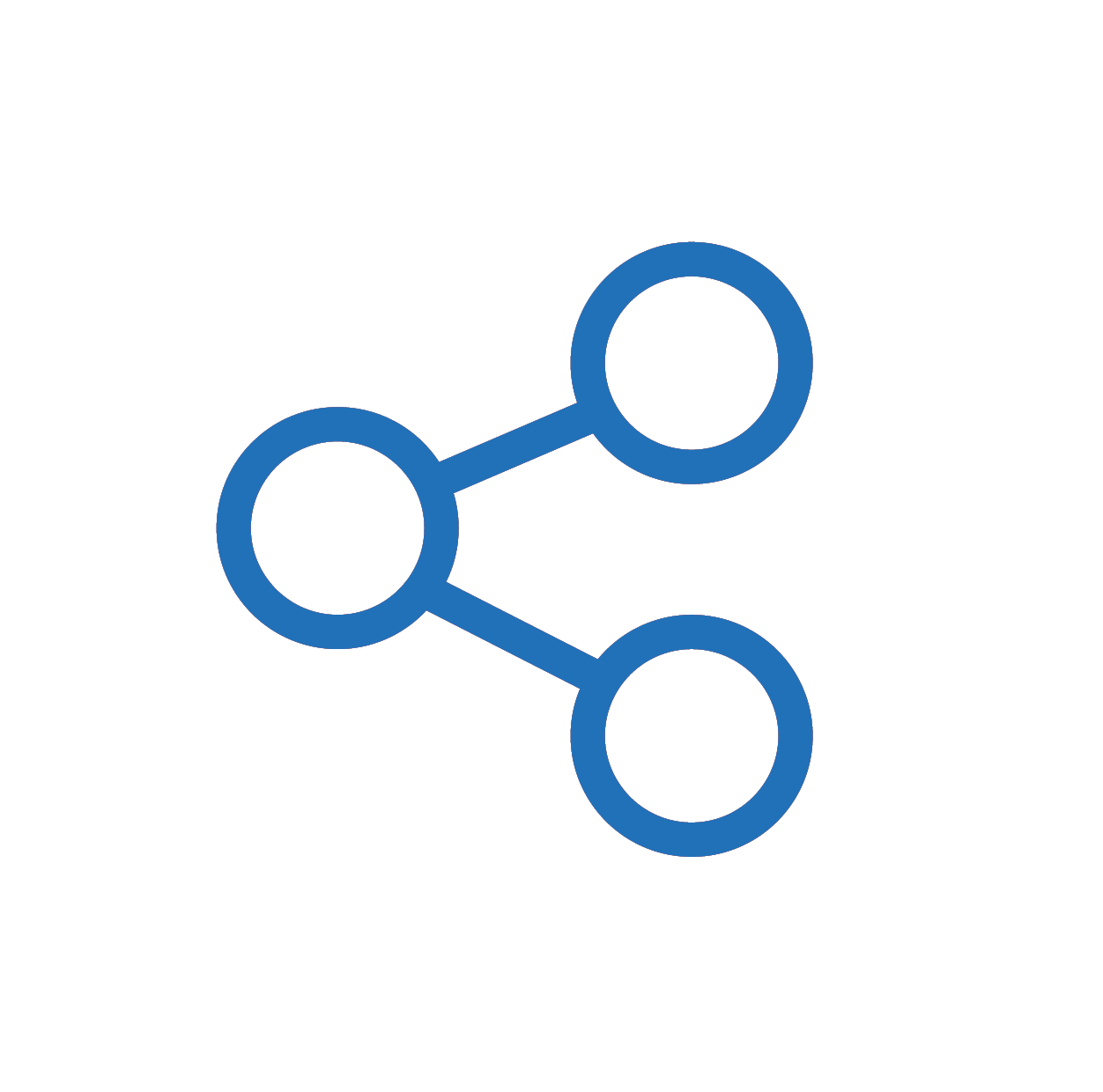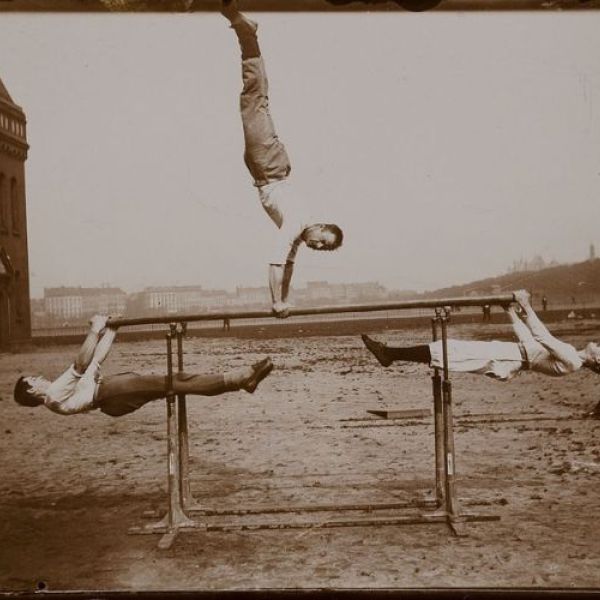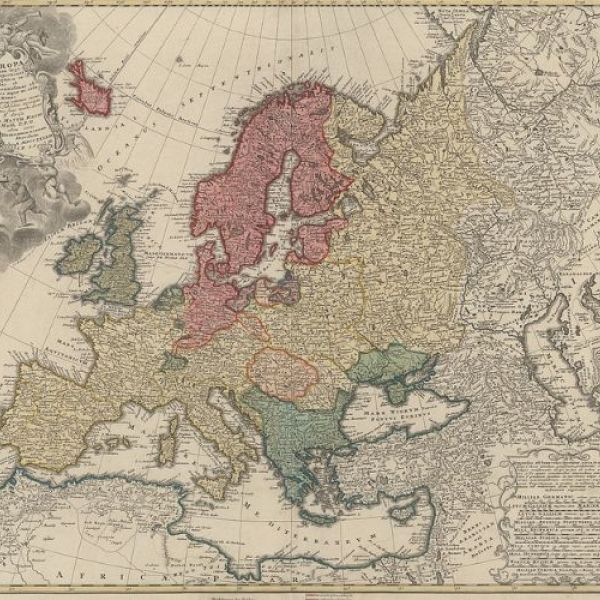
Introduction
The Europeana Foundation works to promote access to, and reuse of, cultural heritage. We advance this mission through the collaborative efforts of the Europeana Initiative — a networked organisation uniting the Foundation, the Europeana Network Association and the Europeana Aggregators' Forum.
Together, we champion digital cultural heritage as a public good for all to enjoy and benefit from. We support heritage professionals and institutions across Europe to open up their collections online for reuse in education, research, tourism, the creative industries - and for enjoyment.
We use our expertise to lead, innovate and advocate for usable and reliable heritage data across Europe. We want our work to contribute to an open, knowledgeable and creative society.
We are proud to lead the deployment of the common European data space for cultural heritage, a flagship EU initiative to accelerate the digital transformation of our sector, foster the creation and reuse of digital cultural heritage content in the cultural and creative sectors, and support a flourishing ecosystem of data sharing within Europe. Bringing over 15 years of experience, we’re excited to take on this responsibility for the third consecutive year. The data space is a decentralised, collaborative place where data is shared securely to drive innovation beyond and within our sector, while participants retain control of their data. It supports our vision of a heritage sector powered by digital, and a Europe powered by culture.
The world we're building
As we look to the future, we recognise that Europe and the world are undergoing rapid transformations - from the rise of AI to socio-political challenges, harrowing wars, and a stark climate crisis. Europe aims to master these changes through a bold, concerted 'triple transition'—digital, social, and green. The Europeana Foundation is committed to contributing to this transition, and to building a world - and sector - which is digital, social and green.

Digital
We develop expertise, tools and policies to drive a human-centred and values-based digital transition. The European Heritage Hub Call to Action embodies this vision, shared with our trusted partners.

Social
We work to make digital heritage a shared resource accessible to all. The Europeana Public Domain Charter reflects our strong commitment to democratising access to digital heritage and promoting a culture of openness.

Green
We are conscious of digitisation's impact on our planet and take steps to mitigate it. Guided by our climate action manifesto, we promote sustainable digital practices and leverage digital heritage to inspire action.
Adapt, adopt, aspire, achieve
We are a learning organisation. Adapting to a rapidly changing environment has always been part of our approach. We continually experiment with and adopt innovative, impactful practices - at the Foundation, within the Europeana Initiative, and in the data space. We also share these practices with our network and partners to ignite positive sectoral change.
We are reviewing the governance of the Europeana Initiative, as a partnership of connected bodies, to unlock its full potential, stay agile, and ensure that we can meet our responsibilities as steward of the data space. This includes strengthening our governance structure, decision-making processes, operating models, and ensuring long-term sustainability and inclusive practices.
Over the past year, together with the Network Association and the Aggregators’ Forum, we developed the Europeana Initiative Vision 2030. This Vision sets a direction of travel for the Initiative - and the data space - over the next five years. It outlines three focal areas which we consider key accelerators for the data space to thrive and achieve the ambitions of the European Commission 2021 Recommendation. These are:
Diversify and increase data, tools and training. With the right frameworks in place, the data space will empower heritage institutions to share data at source. It will enable a diverse range of intermediaries to contribute applications, tools and services - provided they meet data space standards- to be showcased and made available for reuse.
Collaborate with other EU-funded initiatives. The EU is investing in our sector's digital transformation through different funding programmes. Leveraging our participation in new and emerging EU-funded projects and initiatives, we can expand our reach and impact, support new audiences to reuse cultural heritage online and foster interoperability across our sector.
Engage and further support Member States. The data space thrives through the active support and engagement of EU Member States. They support and empower national aggregators, develop national strategies in line with the goals of the 2021 Recommendation, and share their rich data in the data space. By supporting these efforts, we will make the data space more valuable to them.
What we're working on in 2025
This Business Plan outlines our work for 2025, fully aligned with the Europeana Initiative Vision 2030 and its three focal areas, ensuring our day-to-day operations support this joint long-term vision. The work here outlined relies on the support and collective efforts of our partners in the heritage ecosystem, the data space consortium and key stakeholders in Member States and the European Commission.
In 2025, we will increase the amount of high-quality heritage data on Europeana.eu by at least 10%, while ensuring its reuse by diverse communities. We will integrate different kinds of data - ranging from 3D to bibliographic and filmographic data - and support the high-performing infrastructure needed to do this. We will build capacity among professionals and promote the Europeana API suite as a key set service to enable reuse, through outreach, training and onboarding. We will foster reuse through an interactive, Europeana website and participatory activities that engage and inspire, such as our Digital Storytelling Festival and GIF IT UP competition.
Diversify and increase data, tools and training
In 2025, we will run a pilot to explore how our digital collections and their descriptive metadata, provided as datasets, can be used for computational analysis and to support the development of Large Language Models which are compliant with EU regulations. This builds on the work of the datasheets for digital cultural heritage Task Force. We will also continue to build on the learnings of the Twin it! 3D for Europe’s culture campaign to support the aggregation of high-quality 3D data to the data space, and its reuse.
We will develop criteria to integrate relevant tools and services into the data space, enrich the data space website and develop the training offer of the Europeana Academy. Sustaining a robust and secure data space infrastructure work will be a priority. As part of this work, we will develop a persistent and reliable unique identification system and support interoperability with major initiatives and data spaces.

- Title:
- Silicon chip
- Creator:
- Paul Griggs
- Institution:
- Wellcome Collection
- Country:
- United Kingdom
Collaborate with other EU-funded initiatives
In the coming year, we will continue building strategic partnerships with organisations and networks that share our mission, pooling efforts to democratise access to culture and supporting an open, creative and knowledgeable society through cultural heritage.
We will maximise our participation in projects like EIT Culture & Creativity, the European Heritage Hub, the future Competence Centre for 3D and the Data Space for Tourism, and our connections with other leading digital projects. Together, we will strengthen our sector’s resilience and innovation capacity, reach new user groups such as Heritage Scientists through the Cultural Heritage Cloud, explore key topics such as 3D or artificial intelligence and scale and accelerate the data space. We will also run a pilot for data exchange and enrichment with local Time Machine initiatives.

- Title:
- Turner am Barren auf dem Heiligengeistfeld
- Creator:
- Hamann, Heinrich
- Date:
- 1902-1909
- Institution:
- Museum of Arts and Crafts, Hamburg
- Country:
- Germany
Engage and further support Member States
In the coming year, we will review and adapt how we engage with partners and colleagues nationally. We will validate and improve tools designed for their use, such as data statistics dashboards allowing them to track their country’s contribution to the data space.
Building on the success of the Twin it! 3D for Europe’s culture campaign, and in close collaboration with the European Commission, we will launch a new 18 month campaign with the Polish, Danish and Cypriot Presidencies of the Council of the EU to encourage Member States’ contributions to the data space. We will also organise the Europeana 2025 conference in Warsaw from 11 - 12 June 2024, during and in close cooperation with the Polish Presidency; and we will evaluate and move forward with the Country Groups pilot.

- Title:
- Karte von Europa, 1:11 000 000, Kupferstich, 1743
- Institution:
- Deutsche Fotothek
- Country:
- Germany
Projects and partnerships
As a reflection of our trusted position within the heritage ecosystem, and in line with our third focal area, we are proud to participate in EU-funded projects that enrich and enhance our work and the data space. Funded by Digital Europe, Horizon Europe, Erasmus+ or as EU pilot projects, they all contribute to a digital, social and green Europe. We see enormous value in sharing expertise, developing resources and enriching achievements through the initiatives below.
3DBigDataSpace will expand high-quality 3D content in the data space by aggregating datasets, creating a sustainable Europe-wide storage solution, and enhancing data quality through AI.
AI4Culture offers access to a pool of curated AI software tools, datasets and capacity building material to make AI more accessible and usable in the data space and by the whole sector.
DEPLOYTOUR will establish the European Tourism Data Space. Through our involvement, we will connect heritage and tourism to the digital realm and build synergies with the data space for cultural heritage.
DIGICHer works with representatives from the Sámi, Jewish and Ladin communities to design a framework promoting equity, inclusion and diversity in the representation of digital cultural content in the data space and beyond.
ECHOES will pave the way for the European Collaborative Cloud for Cultural Heritage - a collaborative workspace where heritage professionals can access data, tools and services to advance heritage science. Through the data space, we will deliver a valuable dataset for researchers.
Eureka3D-XR will enhance 3D and XR scenarios in the data space, offering tools and resources for cultural institutions to create immersive experiences with cultural content.
The European Heritage Hub unites 20 major heritage organisations in a leading advocacy platform for cultural heritage in Europe. We contribute our digital expertise and collaborate to shape joint positions that drive shared goals forward.
OpenVerse will help us explore the legal and ethical challenges of using cultural heritage in virtual words, while developing solutions for inclusive, open and ethically responsible European virtual worlds. This will support our and the EU’s goal to strengthen technological sovereignty.
XRCulture will enrich the data space with high-quality 3D models, leveraging innovative AI-based digitisation methods and novel XR applications.
Watching Videos Like a Historian equips European educators with tools to teach media literacy through audiovisual resources, an essential skill in today’s landscape of rising misinformation and disinformation.
-
budget_2025_europeana_foundation.pdfDOWNLOAD - Europeana_Professional/Publications/budget_2025_europeana_foundation.pdf